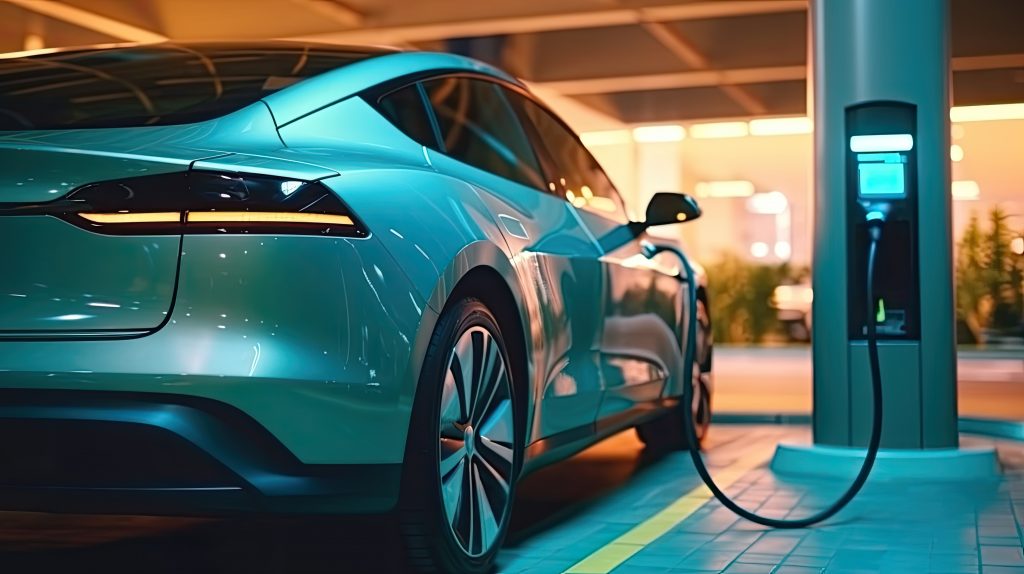About EV Tax Credits

As the world moves toward a greener and more sustainable future, the adoption of electric vehicles (EVs) has been on the rise. To incentivize the shift from traditional internal combustion engine vehicles to EVs, the United States government offers a Federal Electric Vehicle Tax Credit. Below, we’ll provide a detailed overview of the EV tax credit law, eligibility criteria, and the types of EV purchases that qualify for the tax credit.
Understanding the EV Tax Credit
The Federal EV Tax Credit, established to encourage the purchase of electric vehicles, operates as a tax incentive for eligible buyers. Under this law, qualified EV owners can claim a tax credit on their federal income tax returns, effectively reducing their tax liability by the amount of the credit. The credit aims to make EVs more affordable and accessible to a broader range of consumers, promoting the adoption of eco-friendly transportation options.
This tax credit can be substantial, often reducing the effective cost of an EV by several thousand dollars. The credit amount varies based on the battery capacity and the manufacturer’s overall EV sales. The program is designed in such a way that once a manufacturer sells a specific number of electric vehicles, the tax credit available for their vehicles begins to phase out.
Who Qualifies for the Federal EV Tax Credit?
According to the latest guidelines provided by the Internal Revenue Service . . .
1. Taxpayers
The tax credit is available to taxpayers who purchase a new and eligible EV. It’s essential to note that the credit is non-refundable, meaning it can only reduce a taxpayer’s liability to zero. If the credit exceeds your tax liability, the excess won’t be refunded. However, this credit can range from $2,500 to $7,500, depending on the vehicle and its battery capacity.
2. Leased Vehicles
If you lease an eligible EV, the tax credit is typically claimed by the leasing company, which often results in lower monthly lease payments. However, the lessee cannot claim the credit directly.
3. Business Use
Businesses that purchase EVs for operational purposes can also claim the tax credit. Moreover, they can benefit from additional depreciation deductions.
4. Not Second-hand Vehicles
It’s crucial to understand that used electric vehicles are not eligible for the EV tax credit. The credit is strictly available for the first retail customer.
What Purchases are Eligible for the EV Tax Credit?
Only some EV purchases will qualify for the tax credit. As per the information from the IRS . . .
1. Battery Capacity
The EV’s battery capacity is pivotal in determining the credit amount. Generally, vehicles with larger battery capacities qualify for a higher credit. Your EV’s battery capacity must be at least 7 kWh to qualify.
2. Manufacturer Caps
There’s a cap on the number of vehicles a manufacturer can sell before the tax credit available for their vehicles begins to phase out. Once a manufacturer has sold 200,000 eligible electric vehicles, the credit for their vehicles is reduced and eventually eliminated.
3. Vehicle Type
Both fully electric vehicles (BEVs) and plug-in hybrid electric vehicles (PHEVs) are typically eligible for the credit. However, the exact amount varies based on the vehicle’s battery capacity and efficiency.
4. Weight Restrictions
Generally, passenger vehicles and light trucks are eligible. However, certain weight restrictions apply. Vehicles weighing more than 14,000 pounds are usually ineligible.
5. Place of Purchase
The vehicle must be purchased in the U.S. to qualify for the federal tax credit. Furthermore, it should primarily be used within the country.
6. Tax Year Purchase
The vehicle must be placed in service during the tax year you’re claiming the credit to claim the credit. For instance, if you’re looking at credits for vehicles purchased in 2023 or after, refer to the IRS’s updated guidelines on their official website.
Ready to Claim Your 2023 Federal EV Tax Credit?
Self-filers can find the required document, Form 8936, via the IRS’s website.
Trying to Claim an EV Tax Credit for a Purchase Made Prior to 2023?
The rules concerning who qualifies and what purchases are eligible for the federal EV tax credit have been updated since previous years. If you want to claim a tax credit for an EV purchased before April 2023, consult the IRS’s guidelines for earlier-year tax credits here.
Conclusion
The EV tax credit serves as an essential catalyst in promoting the widespread adoption of electric vehicles. By understanding the nuances of the federal EV tax credit program, potential buyers can make informed decisions and optimize their benefits when purchasing an EV. It’s always advisable to consult a tax professional to understand how these credits apply to individual tax situations and ensure compliance with the latest federal guidelines.
Switching to an EV can mean significant savings in both energy used and money saved (when considering fuel costs) over the long run. If you have more questions about owning and operating an EV, like how to charge your electric vehicle, or how caring for an EV differs from a conventional automobile, check out the helpful articles available at CompareElectricity.com.
